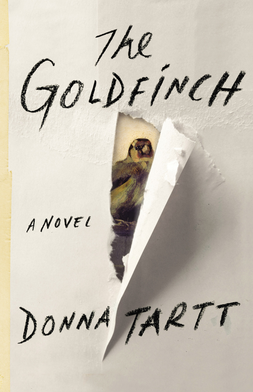The Goldfinch, by Donna Tartt

The reception Donna Tartt garnered for her third novel—her first in twelve years—was called a phenomenon and went on to win the Pulitzer Prize for Fiction in 2014 (among other honors). The story centers on young Theo Decker, whose mother is killed in a terrorist attack at the Metropolitan Museum of Art. At the heart of the story is an object, one that for Theo holds all the longing, sadness, and knowledge of time and loss. It’s a painting that, in the wake of museum’s destruction, Theo takes with him, and like his unexpressed longing, secrets it away, even as his attachment becomes deeper and more intense with time.
Tartt’s novel was both a popular and largely critical success. Called Dickensian in its breadth, with characters who span locales from rarefied Park Avenue apartments, to bleak and deserted Las Vegas McMansions, to the
…a rarity that comes along perhaps half a dozen times per decade, a smartly written literary novel that connects with the heart as well as the mind. I read it with that mixture of terror and excitement I feel watching a pitcher carry a no-hitter into the late innings.
The Goldfinch is all that. A page-turner, a portrait of early 21st century New York, a paean to art and to the mysteries that bind us to objects. The voice of Theo is vivid, his observations trenchant. To spend time with this book is to experience the best of what a sprawling novel can do, enabling us to sink into the world and the mind of another, into the feelings, thoughts, opinions, observations, longings, fears, questions, and doubts of a character who only wants one thing, and wants it beyond all logical measure.
The passages on art are especially satisfying, and as Theo looks at the painting of The Goldfinch, he examines the artist’s work with a startlingly close eye:
. . . the light-rinsed atmosphere, the brush strokes he permits us to see, up close…hand worked flashes of pigment, the very passage of the bristles visible—and then, at a distance, the miracle, or the joke…the slide of transubstantiation where paint is paint and yet also feather and bone. It’s the place where reality strikes the ideal, where a joke becomes serious and anything serious is a joke. The magic point where every idea and its opposite are equally true.
The Goldfinch has been adapted for film, directed by John Crowley, starring Nicole Kidman, Sarah Paulson, and Ansel Elgort, and screenplay by Peter Straughan and Donna Tartt. The film is due to be released
—Lauren Alwan
